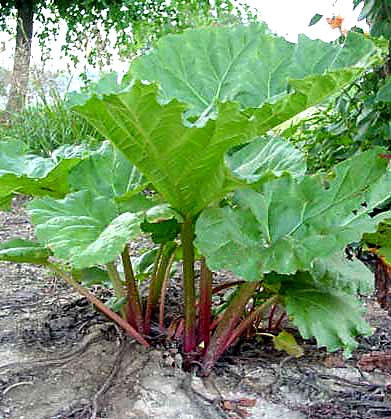Disclaimer: This Materia Medica is provided for informational purposes only and should not replace professional medical advice. Please consult with a qualified healthcare practitioner or herbalist before using any herbal remedies.
Turkey rhubarb, scientifically known as Rheum palmatum, is a valuable medicinal herb that has been used for centuries in traditional herbal medicine systems, particularly in Traditional Chinese Medicine (TCM) and Western herbalism. As a professional herbalist, I’ll provide an exhaustive Materia Medica for turkey rhubarb, covering its botanical characteristics, historical uses, therapeutic properties, dosage, precautions, and modern research findings.
Botanical Description:
- Botanical Name: Rheum palmatum
- Common Names: Turkey rhubarb, Chinese rhubarb, Indian rhubarb, Russian rhubarb
- Family: Polygonaceae
- Habitat: Native to the highlands of Western China, Tibet, Mongolia, and Siberia.
Botanical Characteristics:
- Plant Type: Herbaceous perennial
- Stem: Stout, fleshy, and reddish-brown
- Leaves: Large, palmate with deep, toothed lobes
- Flowers: Small, greenish-yellow, in large panicles
- Root: The medicinal part; large, fleshy, yellow-brown with a characteristic odor
Historical Uses:
- Traditional Chinese Medicine (TCM): Turkey rhubarb, known as “da huang” in TCM, has been used for over 2,000 years. It’s valued for its ability to clear heat, detoxify the body, and promote bowel movements.
- Western Herbalism: In Western herbalism, turkey rhubarb was used as a gentle but effective laxative and digestive tonic. It was employed for constipation, indigestion, and liver complaints.
Therapeutic Properties:
- Laxative: Turkey rhubarb contains anthraquinone glycosides (such as emodin and rhein) that stimulate peristalsis in the intestines, promoting bowel movements.
- Anti-inflammatory: It has anti-inflammatory properties, making it useful for conditions involving inflammation in the digestive tract.
- Hepatoprotective: Turkey rhubarb may support liver health and promote detoxification.
- Antimicrobial: Some studies suggest it has antimicrobial properties.
Dosage and Administration:
- Dried Root: Typically used in the form of a decoction or tincture.
- Decoction: 1-2 grams of dried root in 150 mL of water, simmered for 10-15 minutes. Taken 1-3 times daily.
- Tincture: 1-2 mL, 3 times daily.
- Powdered Root: 0.5-2 grams, taken once daily as a laxative.
- Capsules or Tablets: Follow the manufacturer’s recommendations.
Precautions and Contraindications:
- Pregnancy and Lactation: Turkey rhubarb is contraindicated during pregnancy and breastfeeding due to its potential laxative effects.
- Chronic Use: Prolonged use can lead to laxative dependency and potassium depletion.
- Interactions: May interact with certain medications; consult a healthcare professional if you are on medication.
- Not for Children: Not recommended for children under 12 without professional guidance.
Modern Research:
- Research on turkey rhubarb has focused on its potential as an antioxidant, anti-inflammatory, and antimicrobial agent.
- Some studies suggest that turkey rhubarb may have potential in the management of certain gastrointestinal conditions.
Conclusion: Turkey rhubarb is a potent herb with a rich history of traditional use in both Eastern and Western herbalism. It’s primarily known for its laxative properties but also offers potential benefits for liver health and inflammation. As with all herbal remedies, it should be used with caution and under the guidance of a qualified herbalist or healthcare provider to ensure safe and effective usage. Always consult a healthcare professional before starting any new herbal regimen, especially if you have underlying health conditions or are taking medications.





